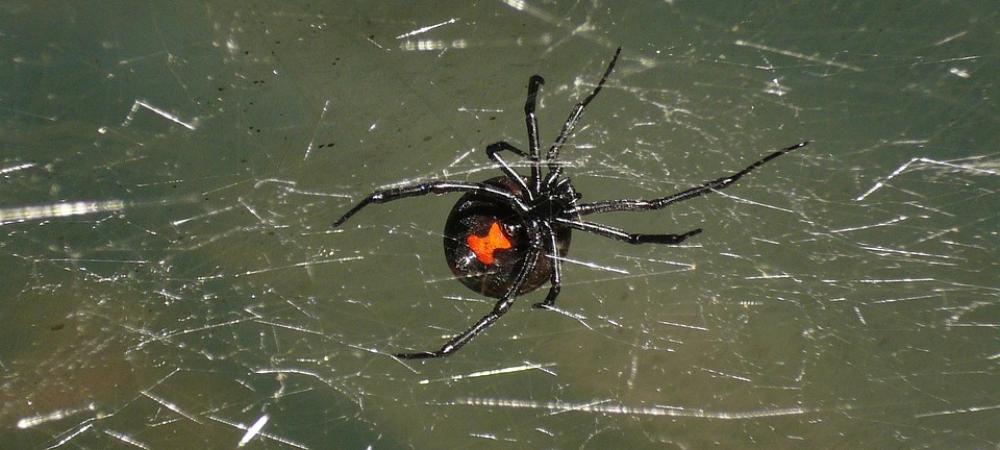A Homeowner’s Guide to Black Widow Spiders in North Carolina

If you're a homeowner in North Carolina, it’s important to know how to spot, prevent, and handle black widow spiders. These venomous creatures are found in many areas across the state, and while they don’t typically pose a huge threat if left undisturbed, their bites can cause serious health issues if you’re not careful.
Here’s everything you need to know about black widow spiders, from identification to prevention and what to do in case you get bitten.
What Does a Black Widow Spider Look Like?
Black widow spiders are probably the most widely recognized poisonous spiders in North Carolina. Most people know the classic appearance of a shiny, black body with a red "hourglass" shape on the underside of the abdomen. However, it’s important to note that the red markings are only present on adult females.
Key Features:
- Female Black Widows: They’re usually black with a red hourglass shape on their underside, and their body is about 1/2 inch long, with legs adding up to 1 1/2 inches in total length.
- Male Black Widows: These are much smaller than females and often have red and white markings on their abdomen.
- Juvenile Black Widows: When they’re young, they are tan or gray with orange and white stripes, and these markings might stay with them as they grow into adults.
Where Do Black Widows Live?
Black widow spiders are notorious for hiding in dark, protected places. You can typically find them in the following areas around your home:
- Crawlspaces
- Under rocks or wooden boards
- In sheds or woodpiles
- Beneath appliances
- In dense plant growth or corners that are dark and damp
- Electrical, water, or telephone equipment boxes outdoors
If you’re ever working in an area like this—especially in places like basements or attics—keep a close eye out.
How Do Black Widows Hunt?
Black widow spiders are not aggressive hunters. Instead, they create a unique web to catch their prey. Their webs are tangle-shaped and can trap everything from insects to even small reptiles and mammals, like lizards or mice. The black widow’s venom paralyzes its prey, which is then consumed.
What Happens When a Black Widow Bites?
Though black widows don’t bite unless they feel threatened, their venomous bite can cause a range of symptoms.
Initial Symptoms of a Bite:
- Pain: Often mild at first, but increasing in intensity.
- Redness and Swelling: The bite site may appear reddish or bluish.
- Pain and Cramping: Muscle pain and cramps are common, especially in the abdomen, back, and thighs.
- Other Symptoms: Headaches, nausea, vomiting, difficulty breathing, weakness, and high blood pressure.
While the bite itself may not feel like much, symptoms usually begin within the first 3 hours, and can escalate quickly. If left untreated, symptoms may worsen, and you may experience serious health issues.
Note that black widow bites require medical attention—they can be life-threatening, especially for young children, the elderly, or those with weakened immune systems.
What to Do If You’re Bitten
If you suspect you’ve been bitten by a black widow spider, here’s what you should do:
- Clean the Bite Site: Wash the area with soap and water and keep it clean.
- Seek Medical Attention: If you experience severe muscle pain, nausea, weakness, or difficulty breathing, go to the hospital immediately. An antivenom serum can help, but it needs to be administered soon after the bite.
- Contact Poison Control: Call NC Poison Control at 1-800-222-1222 for advice or more information on the bite.
Important: Make sure you’re up to date on your tetanus shot, as spider bites can sometimes lead to secondary infections.
How to Prevent Black Widow Spiders in Your Home
Now that you know what a black widow is and what to do in case of a bite, let’s talk prevention. Here are a few tips to minimize the risk of a black widow encounter in your home:
- Seal Up Cracks and Gaps: Check for any cracks or gaps in your home’s foundation, around windows, and doors. Seal them up to prevent spiders from entering.
- Declutter: Black widow spiders love hiding in dark, undisturbed places, so keeping your crawlspaces, attics, and basements organized and clutter-free will reduce places where they can nest.
- Regularly Inspect: Be vigilant when working in places like garages, sheds, and basements. Look for webs or the spiders themselves.
- Use Caution Outdoors: If you have a woodpile, make sure to wear gloves when handling it. Black widows like to hide under logs and wood. Keep your outdoor storage areas organized and well-maintained.
- Regular Pest Control: Consider scheduling regular pest control treatments to keep spiders and other pests at bay. A professional can identify problem areas and help keep your home spider-free.
What To Do If You Find a Black Widow
If you find a black widow in your home, don't try to handle it yourself. Instead, call a local professional, such as Peeler Environmental, can also identify potential nests or areas that may harbor more spiders. They can handle safe removal.
Black Widows in North Carolina
Black widow spiders can be dangerous, but with the right knowledge, you can avoid bites and prevent them from taking up residence in your home. Keep your spaces tidy, inspect potential spider habitats regularly, and take quick action if you get bitten. If you’re ever unsure about a bite or how to handle an infestation, don’t hesitate to contact your local pest control professional.
By staying vigilant, you can keep your home safe and avoid any unexpected encounters with any of the common NC spiders!
Sources:
